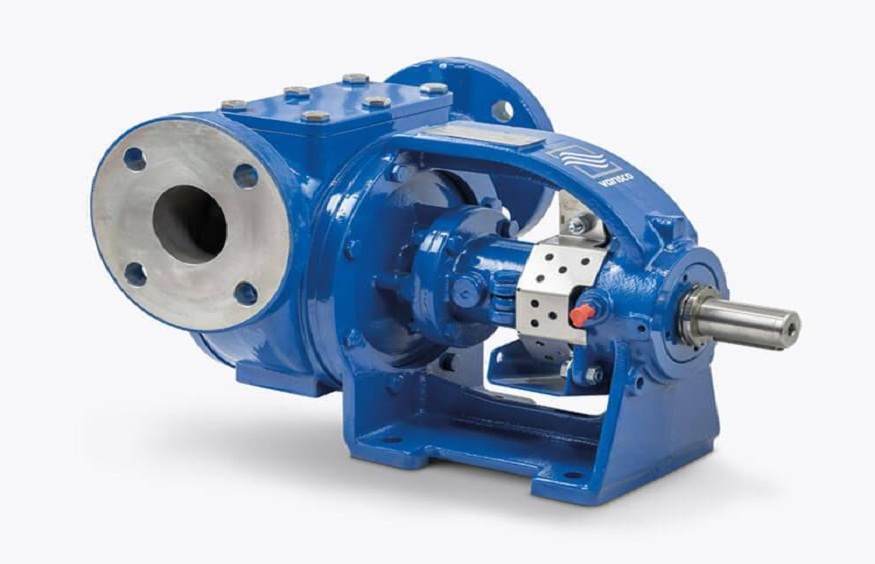Industrial gear pumps are the unsung heroes of numerous sectors, quietly powering processes that keep businesses, factories, and entire industries in motion. With each turn of the gear, these pumps ensure precise and reliable fluid movement, proving indispensable in a range of applications. If you’re in manufacturing, automotive, or any field involving fluid handling, understanding the role of gear pumps could be key to unlocking efficiency and innovation. This post explores the multifaceted applications of industrial gear pumps and why they remain vital to modern industry.
What Are Industrial Gear Pumps?
Industrial gear pumps are mechanical devices designed to move fluids with the help of rotating gears. They operate by using the meshing of gears to pump fluid by displacement. The fluid is trapped in the space between gear teeth and the pump casing, and then moved from the pump inlet to the outlet. Their robust design and ability to handle viscous fluids make them ideal for various industries.
Design and Functionality
The basic design of gear pumps involves two gears—often referred to as the driving gear and the driven gear—that rotate in opposite directions. This motion creates a vacuum at the inlet, allowing fluid to be drawn into the pump. The fluid is then carried through the gears and expelled at the outlet. Their simple yet efficient design makes them suitable for high-pressure applications.
Reliability and Maintenance
Gear pumps are known for their durability. With fewer moving parts compared to other pump types, they require minimal maintenance and offer long service life. Their reliability under continuous operation is a major reason for their widespread use in industrial settings.
Versatility in Applications
One of the key benefits of gear pumps is their versatility. They can handle a wide range of fluids, from low-viscosity solvents to high-viscosity oils and even abrasive or corrosive substances. This flexibility allows them to be used in various industries, each with unique fluid handling needs.
Gear Pumps in the Automotive Industry
In the automotive sector, gear pumps are vital for the lubrication and fuel systems. They ensure that oil circulates efficiently, preventing engine wear and extending the lifespan of vehicle components.
Lubrication Systems
Gear oil pumps are used to circulate lubricants in engines, transmissions, and differentials. By maintaining a steady flow of oil, these pumps help reduce friction and heat, ensuring smooth operation of vehicle parts.
Fuel Transfer and Management
In fuel systems, gear pumps facilitate the transfer of gasoline or diesel from the tank to the engine. Their ability to handle varying viscosities and pressures makes them ideal for efficient fuel management in vehicles.
Hydraulic Systems
Gear pumps also play a critical role in hydraulic systems, providing the necessary force to power hydraulic machinery. Whether it’s steering systems or brakes, these pumps ensure the reliable transmission of hydraulic fluid.
Role of Gear Pumps in Chemical Processing
Chemical processing plants rely on gear pumps for their ability to handle corrosive and high-viscosity fluids. These pumps ensure the safe and precise movement of chemicals, critical for maintaining process integrity.
Handling Corrosive Fluids
In chemical industries, the ability to handle corrosive fluids is crucial. Gear pumps with specialized materials and coatings can resist chemical attack, ensuring long-term performance and safety.
Precision in Fluid Handling
Precision is key in chemical processing. Gear pumps provide consistent flow rates, essential for blending, dosing, and transferring chemicals where accuracy is paramount.
Customization for Specific Needs
Gear pumps can be customized to meet the specific needs of chemical processes. Options such as heating jackets or explosion-proof designs enhance their suitability for specialized applications.
Food and Beverage Industry Applications
In the food and beverage sector, gear pumps are used to handle a variety of products, from sauces and syrups to oils and beverages. Their sanitary design and gentle handling preserve product quality.
Sanitary Standards
Gear pumps used in food processing are often made from stainless steel and designed to meet strict sanitary standards. This ensures that they do not contaminate the products they handle.
Handling Viscous Products
The ability to handle viscous products is a key advantage of gear pumps in this industry. Whether it’s chocolate or honey, these pumps can transfer thick substances without compromising quality.
Consistent and Gentle Flow
For delicate food products, maintaining consistency and preventing degradation is vital. Gear pumps provide a gentle flow, preserving the texture and flavor of the products they handle.
Gear Pumps in the Oil and Gas Sector
The oil and gas industry relies on gear pumps for their ability to move viscous fluids and operate under harsh conditions. These pumps are used in upstream, midstream, and downstream processes.
Crude Oil Transfer
In upstream applications, gear pumps play a role in transferring crude oil from wells to processing facilities. Their robust construction allows them to handle the high viscosity and pressure of unrefined oil.
Refined Product Handling
In downstream processes, gear pumps help move refined products such as gasoline, diesel, and lubricants. Their precision ensures the accurate metering and blending of these products.
Offshore Applications
Gear pumps designed for offshore use are built to withstand the challenging conditions at sea. Their reliability is crucial for maintaining operations in remote oil drilling locations.
Industrial Manufacturing and Gear Pumps
Manufacturing industries utilize gear pumps for a wide range of applications, from moving coolants and lubricants to transferring adhesives and resins. Their versatility and reliability make them a staple in manufacturing settings.
Coolant Circulation
In machining operations, gear pumps circulate coolants to reduce heat and friction. This extends tool life and improves the quality of the finished product.
Adhesive and Resin Transfer
For the production of materials like composites and laminates, gear pumps accurately transfer adhesives and resins. Their ability to handle viscous materials ensures efficient and precise application.
Supporting Automation
Gear pumps are often integrated into automated systems. Their consistent performance and easy integration with control systems support the automation of production processes.
Environmental and Waste Management Applications
In environmental and waste management, gear pumps are used for moving waste fluids and chemicals. They support processes that convert waste into reusable resources.
Moving Waste Fluids
Gear pumps handle a variety of waste fluids, ensuring efficient transfer and processing. Their ability to cope with solids and sludge makes them ideal for these applications.
Chemical Treatment
In waste treatment facilities, gear pumps are used to dose chemicals that neutralize or treat waste products. Their precision ensures proper treatment and compliance with environmental standards.
Supporting Recycling Processes
Gear pumps facilitate recycling by moving materials through various stages of the process. Their durability and efficiency support the recycling of a wide range of materials.
Conclusion and Future Outlook
Industrial gear pumps continue to evolve, adapting to the changing needs of industries worldwide. While they are already crucial in sectors like automotive, chemical processing, and manufacturing, their applications are expanding with technological advancements.
For businesses looking to enhance their fluid handling capabilities, understanding the role of gear pumps is essential. By choosing the right pump for their specific needs, companies can improve efficiency, reduce costs, and increase reliability. Industry professionals are encouraged to explore the many possibilities gear pumps offer and consider how they can integrate these versatile tools into their operations.
For those seeking to learn more about industrial gear pumps and their applications, exploring guides, webinars, and expert consultations can provide further insights. Engaging with industry communities and staying updated on technological advancements will ensure you harness the full potential of gear pumps in your business.




